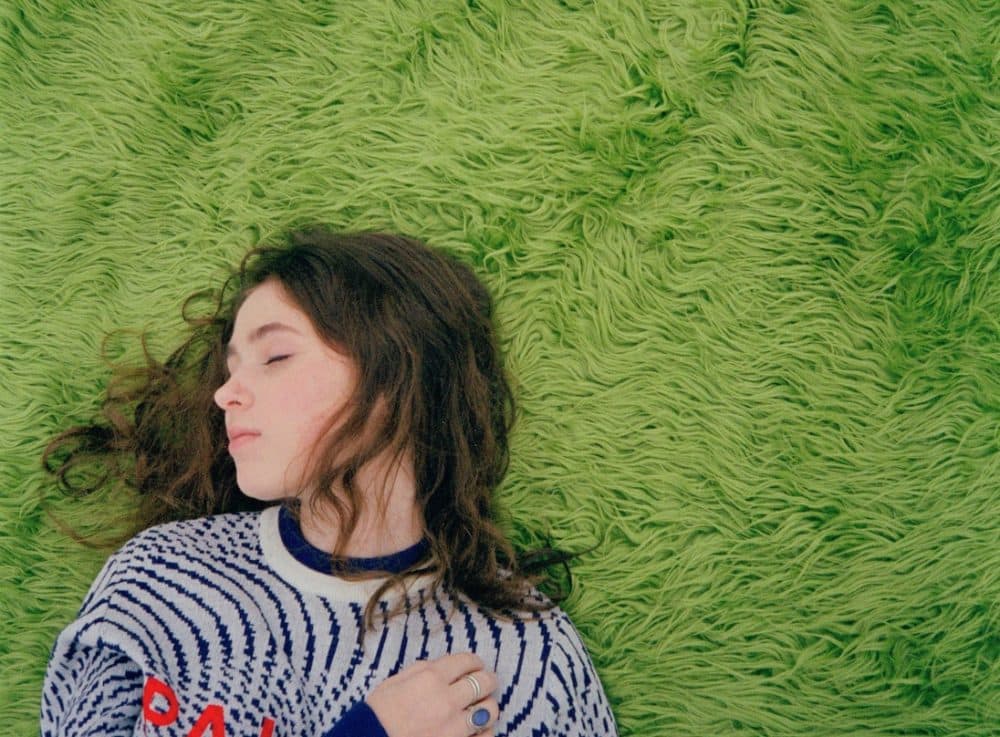Advertisement
Commentary
Jumping From YouTube To Festival Stages, Clairo Is Of A New Generation Of Artists Making The Internet Work For Them

Back in 2017, before she was called on to play Coachella, or Boston Calling, or join Khalid’s arena tour, 18-year-old Claire Cottrill (not yet known as Clairo) was spending her days the way any aspiring artist might: recording song ideas into a voicemail app, messing around with a flea market drum machine and producing her own songs and videos in her Carlisle, Massachusetts, bedroom. She loved it, but wasn’t focused on going viral.
That might be part of the reason why she did. Her self-made YouTube video for “Pretty Girl” — a mellow R&B-tinged track that she wrote, recorded, and filmed in around two hours — features a sweet melody and pointed chorus (“I could be a pretty girl/ I’d wear a skirt for you/ I could be a pretty girl/ shut up when you want me to”). The word “authenticity” might be overused in pop music, but the entire song and video are nothing if not authentic: The made-in-Photo-Booth video shows her dancing goofily in oversized crewnecks, with white earbuds tethering her to her computer for the entire song. Its YouTube description reads “on the day i made this, my hair was greasy, my skin was bad, i had nothing to wear, and i didn't want to leave bed. i had just woken up in this video and you can definitely tell (lol) i felt really ugly but realized that it's perfectly okay to feel that way/have those types of days.”
The combination of her candor and internet anonymity made the whole thing feel intimate — and then it caught on. Soon, the video had amassed over 15 million YouTube views. Her SoundCloud following promptly exploded, but it was no fluke. Her follow-up release, “Flaming Hot Cheetos,” had a similar dreamy sound and everygirl charm, and it reached similar reception. Within months, both Pitchfork and The Fader profiled her, and she signed on The Fader’s own label soon after.
Clairo is just one of a recent generation of self-made musicians building careers and gaining widespread attention with online streaming platforms like SoundCloud, Bandcamp and YouTube. While streaming hasn’t always done artists many favors (shoutout to fraction-of-a-cent royalties replacing album sales), the more grassroots-friendly platforms have become a major factor in shaping modern music. They don’t just help artists find more fans without relying on industry assistance; they also create a powerful way for innovative (and therefore commercially riskier) types of new music to reach critical mass without mainstream labels.
Current Billboard 100 chart-topper and Atlanta-based singer/rapper Lil Nas X is perhaps the best example of streaming’s subversive potential — industry execs were so baffled by the combination of country and trap music on his hit “Old Town Road” that they fought to remove it from Billboard’s country charts altogether, though it reached the mainstream anyway — but these platforms have popularized a range of new sounds by reducing commercial record labels' sway over the industry, which is sometimes out of touch with what listeners really want to hear. They’ve democratized creative influence and helped artists — who might have previously been held back by financial bracket, location and presupposed commercial viability — break out based on talent and instinct alone.
Singer-songwriter Sidney Gish is another local who’s built a career independently, largely driven by internet presence: as a 20-year-old Northeastern student, she self-released her second album, "No Dogs Allowed," to Bandcamp with a complete lack of fanfare. But her disarming, idiosyncratic songs — which pack in smirky references with the efficiency of an "Arrested Development" episode, paired with looping guitar and indie-pop melodies — created fast buzz on social media, leading to a Pitchfork review and feature in NPR Music’s “Slingshot” series over the next few weeks, with all the attention ultimately leading her to tour with big indie names like Mitski and Hop Along, among others. It helps that Gish’s online presence is as creative and funny as her songs, and that her meme-savvy following rewards entertaining content with retweets and social media shares, but social media only works when it boosts creations that resonate on their own.
Advertisement
That’s one advantage that Clairo and Gish have in common: They both grew up submerged in online culture to a degree that few older artists have experienced, and have a natural understanding of the nuances of it all. They’ve used YouTube, BandCamp and SoundCloud as a creative sandbox as much as a stage. There’s still no substitute for talent, but it goes a long way to have both on your side.
Still, it’s not all shares and retweets. The trouble with internet-fueled fame is that it’s subject to the whims of the internet: namely, the uglier sides of Reddit and the YouTube comments section. One Redditor discovered that Clairo’s father was the former chief marketing officer of Converse, and partially responsible for its (now-defunct) Rubber Tracks recording studio, which forged closer ties between the brand and the music industry. “Industry plant” rumors began to surface, discrediting Clairo’s role in her success and suggesting that her father’s connections had been at least partially responsible. As much as the internet loves a viral story, it also loves a conspiracy theory.
They’ve used YouTube, BandCamp and SoundCloud as a creative sandbox as much as a stage.
Clairo herself spoke out against the term. The implications of “industry plant” are ugly, but they’re also often sexist, since it’s almost always used to throw skepticism at the talents of young female artists. Indie singer/guitarists Phoebe Bridgers and Snail Mail have faced similar criticism following their own rise to critical acclaim. The cumulative message is that talented young male musicians get to be geniuses while talented young female musicians are probably frauds, especially if they put any effort into their appearance or are any interpretation of conventionally hot. Artists who grow via grassroots and online popularity are especially subject to this label — for some, it’s still hard to believe that an artist can drive their own career without bending to industry gatekeepers.
Still, it hasn’t slowed Clairo down. If anything, it’s made her more determined in her efforts. As she gears up for a busy summer and performs on her biggest stages yet, she might be having the last laugh.


